Table of Contents
Sports, exercise and, in fact, any physical activity have many advantages. The most common reason people do it is to get muscles or a more attractive body. However, the benefits of sports or an active lifestyle definitely don’t end here. Many of them are not immediately evident, but they have a very positive effect on the human body.
10 (in)visible benefits of physical activity
Thanks to sports, your body can cope more effectively with chronic or mental stress. Physical activity brings many things, and the best part is that it’s free. All you have to do is wear sneakers, go for a walk, run or do a few push-ups or squats. All these can help you improve your physical or mental health. You can find out more about the specific benefits in our article below.
1. Lowers blood pressure
In this case, it should be noted that there is a difference between strength training and endurance physical activity. The endurance training has greater benefits for high blood pressure, for example.A study from 2016 looked into this in more depth. It found that men who engaged in endurance activity, specifically running, had a significant reduction in blood pressure.[1]
If you don’t like running, other physical activities, such as cycling, skating, swimming or hiking are also beneficial. According to the National Institutes of Health (NIH), even small changes, thanks to which you will move more during the day, can help. Ignore the elevator and walk up the stairs. When you are running errands, park around the corner and walk a bit. If you work in an office, don’t forget to take regular breaks and walk a few steps. [2]

Try some fun activities such as skipping rope, fast walks or dance lessons. High blood pressure is also most often associated with obesity and weight issues. These issues can also be addressed with regular exercise, ideally combined with a healthy diet. So, if you work on your diet, make it healthier and reduce salt consumption, the changes may be even more noticeable. Weight loss can also reduce high blood pressure, so that’s two birds with one stone. [3]
If you are interested in how to lose weight easily, read our article Weight Loss Basics: You Will Be Surprised What Is Really Important.
2. Improves cholesterol levels
If you are looking for a way to lower your cholesterol, physical activity can be an effective way to do so. According to the American Heart Association, high cholesterol is caused, among other factors, mainly by lifestyle choices, which include lack of exercise, unhealthy diet, weight issues or obesity. Just from this simple information you can tell that physical activity can be an effective way to lower cholesterol. [4]
A 2003 study compared physically active women with those who lived a sedentary lifestyle and didn’t exercise. The first group was found to have significantly lower levels of bad cholesterol (LDL) and higher levels of good cholesterol (HDL). Another study concluded that regular endurance activities are especially useful for men with low HDL cholesterol. The exercise contributed to the increase of HDL, which can ultimately reflect in the reduction of the risks of various diseases. [6]
Research from the renowned scientific magazine Journal of Obesity also speaks in favour of an active lifestyle. It followed overweight and obese adults who adhered to a specific diet and engaged in endurance activities such as walking, jogging or cycling. All of this resulted in a reduction in bad cholesterol and an increase in good cholesterol. The last study we will mention was focused on runners. It found that those who ran more than 50 miles a week had significantly better levels of good cholesterol than runners who ran less than 10 miles a week. At the end of the day, any physical activity counts. The resulting effect is, of course, slightly greater if you add some dietary measures and make your diet healthier. [5–8]
So if you suffer with high cholesterol, it is definitely worth trying some of the endurance activities that could help improve it. In case you tried running and you didn’t like it, maybe our simple guide, thanks to which we enjoyed running, will help you. You can find it in the article How to Start Running? Simple Guide Even for Complete Beginners.
If you would rather learn about the benefits of cycling, you can do so in our article Cycling Strengthens the Legs, Buttocks and Helps with Weight Loss. What Else Can It Do?
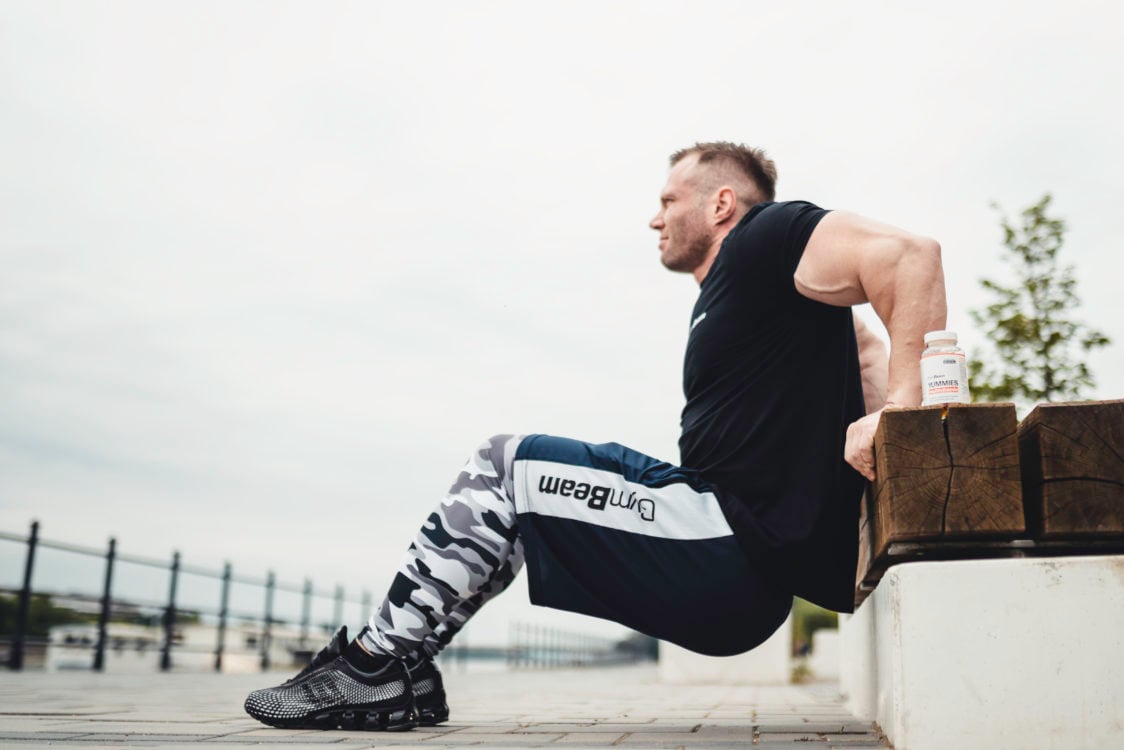
3. Improves blood sugar levels
Regular exercise also has an effect on improving blood sugar levels. This is because it can help increase the sensitivity of cells to insulin, which then use the energy from the bloodstream more efficiently. As a result, you can also reduce insulin resistance. For example, if you walk at a moderate pace, your heart will start beating faster and breathing will be a little more difficult for you. At the same time, your muscles consume more glucose, which over time can have a positive effect on your blood sugar levels. Thanks to that, insulin will work better in your body and these benefits usually last for several hours after physical activity. [30]
In addition, it can give you other incentives such as better overall condition or bigger muscles, as well as loss of weight. By losing weight, you become more sensitive to insulin and you can lower your blood glucose levels, alleviate or even cure type 2 diabetes in the long term. [28–29] [31]
To put it simply, if someone does sport regularly and has a healthy body weight, their cells are more sensitive to insulin. Their blood sugar levels are then more likely to be normal.
Therefore, the body is ultimately less susceptible to the issues that can be caused by elevated blood sugar levels. A 12-month study from 2017 also brought interesting results. It followed people with type 2 diabetes who were on medication to lower their blood sugar. This group underwent an aerobic exercise lasting 30 to 60 minutes 5-6 times a week. This was combined with strength training two to three times a week. After the transition to an active lifestyle, some participants were able to reduce the amount of their medication. Through regular exercise, they have improved their blood sugar levels so much that they no longer had to take so much medication for the same benefits. [9–10]
If you are further interested in this topic, read our article Insulin Sensitivity – How to Increase It and Prevent Insulin Resistance.
You might be interested in these products:
4. Reduces the risk of some types of cancer
The benefits of physical activity usually generate additional sub-benefits for your body. In this context, the prevention of the risk of serious diseases, including cancer, is often mentioned. Exercise can help you maintain a healthy weight. Obesity and overweight are associated with up to thirteen different types of cancer. The risks also include increased levels of some hormones, which exercise helps to get under control. [11]
The findings that link increased levels of physical activity to a lower risk of developing specific types of cancer come mainly from various studies. Worth mentioning are the following:
- A large-scale study of more than 1 million participants found that engagement in leisure time physical activity was associated with a reduction in the risk of up to 13 types of cancer. [12]
- Physically active women have a lower risk of breast cancer than their less active counterparts. Even just 150 minutes of exercise per week was observed to be beneficial. [13]
- A meta-analysis of 126 studies concluded that leisure time physical activity reduces the risk of cancer by as much as 10%. [14]
There are many other studies that suggest that regular physical activity helps to prevent cancer and some chronic diseases. It is also associated with a reduction in the risk of premature death. [16]
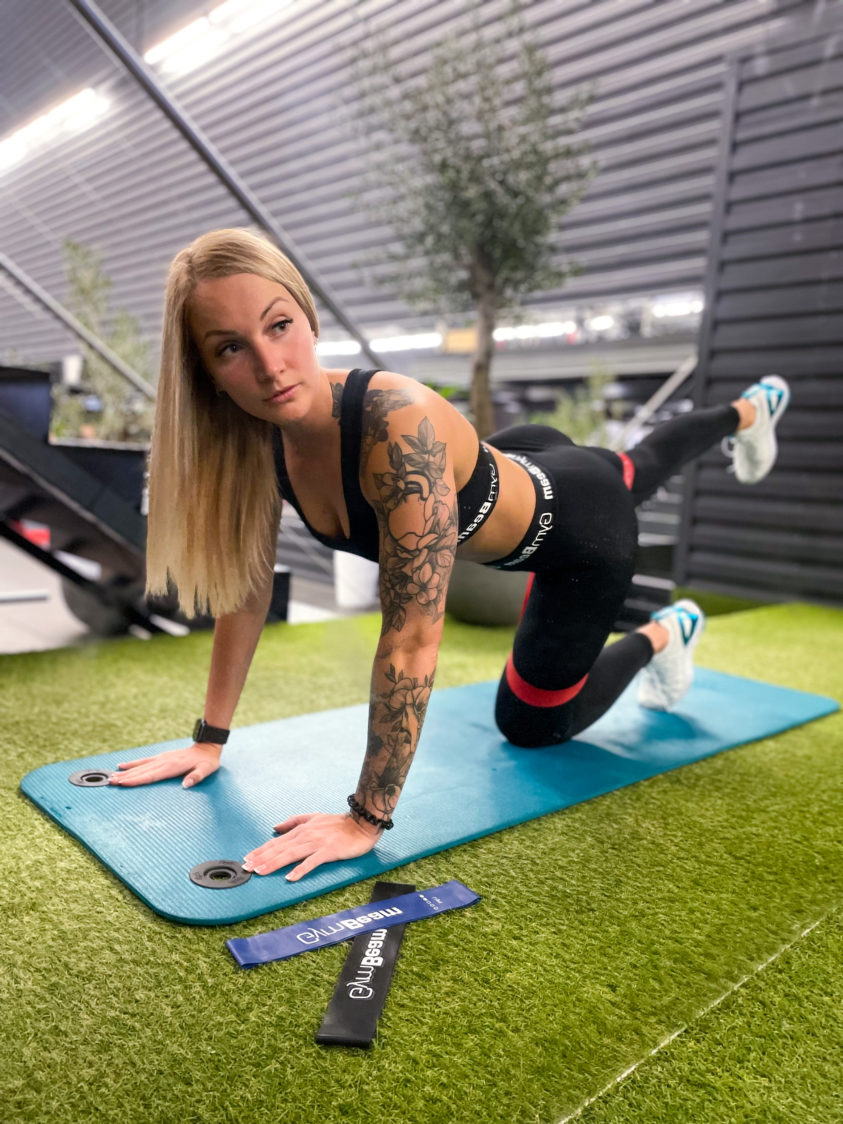
5. Improves the overall heart health
The above facts show that regular exercise can both help prolong and improve your life. One of the other advantages, especially in endurance training, is also the improvement of your form, which can affect the overall health of your heart. The heart distributes oxygenated blood around the body. However, there needs to be enough oxygen and to achieve that uoi need to breathe properly.
By exercising regularly, your stamina gradually increases. This allows you to work more effectively with your breath. Thanks to adaptation to training, the heart no longer has to work as hard as when you spent your days on the couch.
The heart rate is lower and it needs fewer strokes for the same amount of work. This can ultimately affect its overall health.
Aerobic sports, for example, lead to a reduction in heart rate by improving the performance and work efficiency of the entire cardiovascular system. Ideally you should involve it in your routine for at least 30 minutes a day, 5 days a week. A good examples are running, swimming, cycling, speed walking, skipping rope or skating. [17]
Excessive body fat is one of the risk factors for heart disease along with the already mentioned high cholesterol. Strength training can also be an interesting option. Like endurance exercise, strength training will help you lose weight and gain muscle as a bonus. A good example is exercising with your bodyweight, dumbbells or with resistance bands. [18]
Our article How to Create a Quality Training Plan – Tips and the Most Common Mistakes can also help you to learn more.
6. Contributes to relaxation
Regular aerobic exercise, such as hiking, biking, running, etc., can leave remarkable changes in your body. This applies not only to the above-mentioned effects on various organs or diseases, but also to your mind and psyche. Exercise can help you relieve stress, improve your mood, relieve depression, anxiety or increase your alertness. Not to forget its ability to contribute to better sleep. [19] [22]
Some studies also yielded some interesting conclusions in favour of exercise and sleep:
- People who spent 10 to 16 weeks doing either moderate-intensity aerobic exercise or high-intensity strength training reported improved sleep quality and faster falling asleep. [20]
- Training with dumbbells and stretching for four months led to significantly better sleep in people who suffered from insomnia. [21]
If you are further interested in this topic, be sure to read our article on How to Improve Your Sleep and How It Affects Health and Muscle Growth.
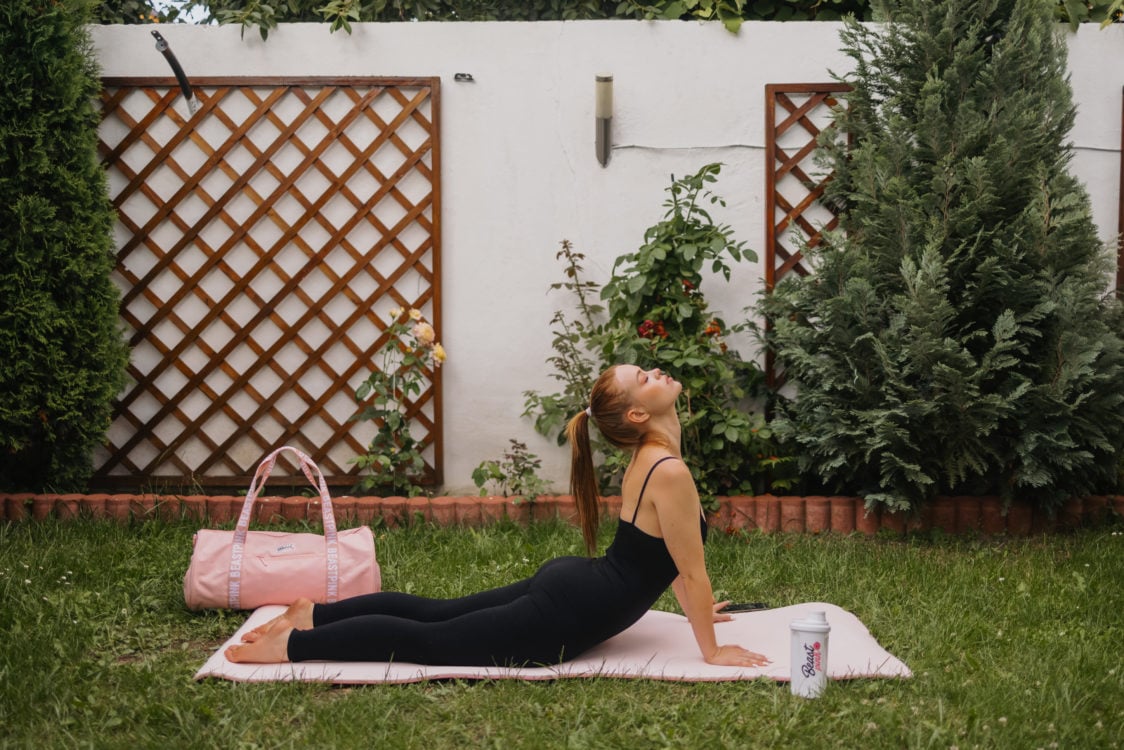
7. Improves breathing
One of the great (in)visible benefits of exercise is better breathing. When you are physically active, your heart and lungs need to work harder to supply your muscles with the oxygen they need to exercise. Just as regular exercise strengthens your muscles, it also makes your lungs and heart stronger.
As your physical condition improves, your respiratory system gradually works much more efficiently. The result is, for example, that you no longer breathe like a steam locomotive while climbing stairs. Aerobic activities such as running, speed walking, cycling, hiking, but also various intensive training sessions or housework at a brisk pace can help you with this. [23]
8. Has a positive effect on the immune system
Regular exercise is one of the main pillars of a healthy lifestyle. This is due not only to the above-mentioned benefits, but also to a positive effect on the immune system. This is also supported by a study from 2019, which found that regular exercise can improve the body’s defence mechanisms and has anti-inflammatory effects. [24]
The fact remains that the immunity of people who exercise regularly is better. The reason is associated with higher immune resistance to diseases. This is followed by higher activity of the cells of the immune system, which are in a way improved by sports activity. Of course, everything should be done in moderation.
If you want to do more for yourself in this regard, read our article 15 Ways to Strengthen Your Immune System and Protect Your Health.
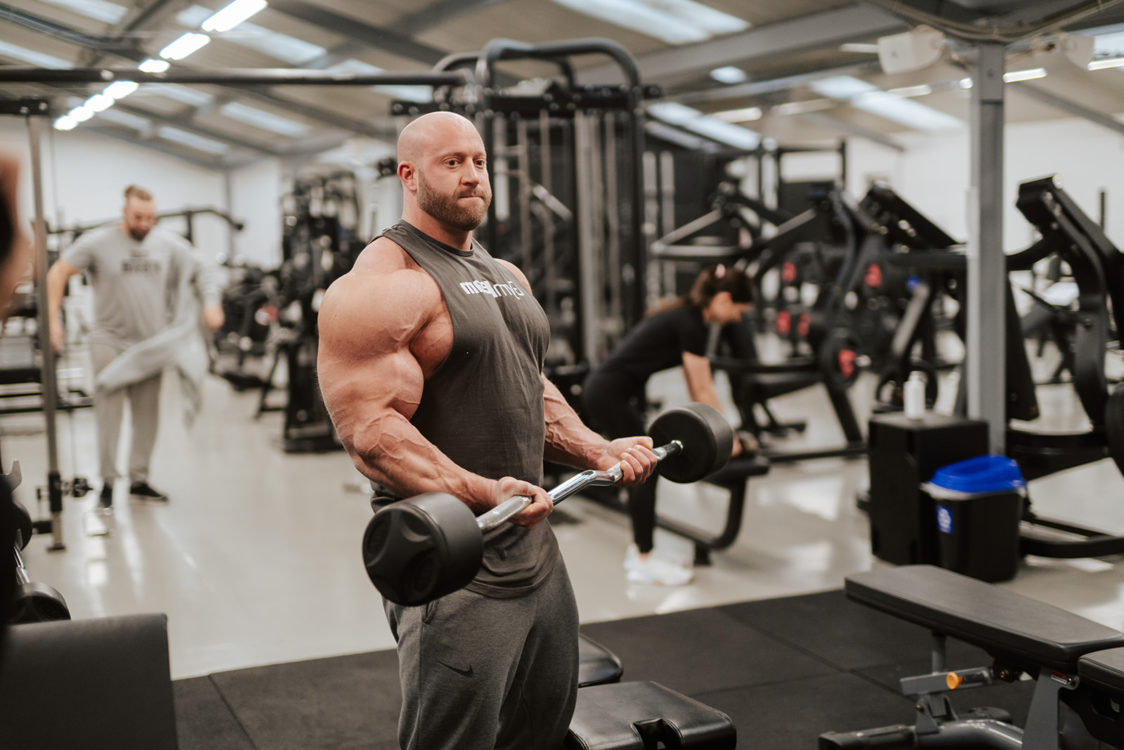
9. Improves flexibility and balance
This advantage will be appreciated especially by older people who are more prone to falls and resulting injuries. Regular exercise will help strengthen the main muscles, midsection of the body, lower back and legs. This can improve your stability, i.e. the ability to maintain balance and prevent unpleasant falls. On top of that, it can improve flexibility, which is usually negatively affected by ageing as well.
Better flexibility can have a positive effect on overall fitness and posture. A great way to improve flexibility and balance is, for example, yoga. But flexibility is just one of its many benefits. If it is new to you, be sure to check out our article Yoga: The Key to Physical and Mental Balance, which will guide you through the basics of this exercise.
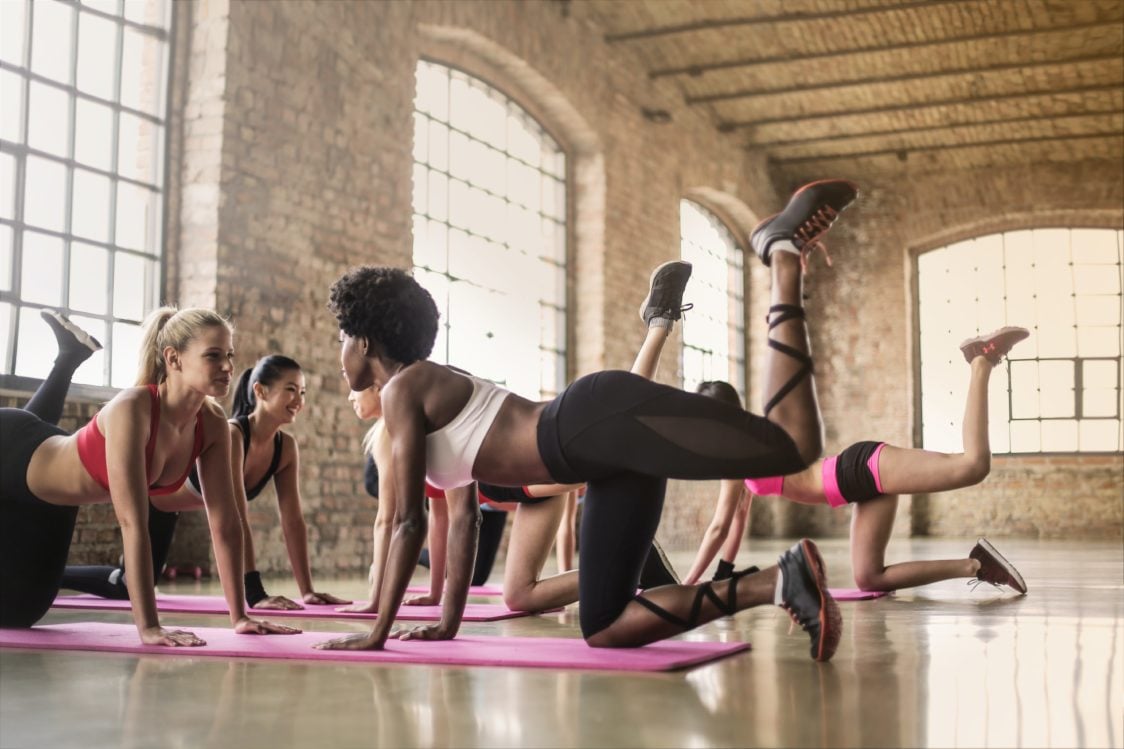
S vyšším vekom sa nespája len strata flexibility a balansu, ale kostnej hmoty. Predchádzať jej a znížiť riziko zlomenín opäť môžete vďaka pravidelnému cvičeniu. Pre kosti sú najlepšie aktivity, ktoré vás nútia čeliť určitej záťaži alebo odporu. Skvelou voľbou je napríklad turistika, pri ktorej okrem iného spoznáte aj krásy prírody. Rovnako efektívne môžu byť aj každodenné aktivity, ako chôdza či zdolávanie schodov, prípadne koníčky ako tanec alebo tenis. Pomôcť môže aj cvičenie s činkami alebo posilňovacími gumami. [25]
10. Helps with productivity
People who exercise regularly are usually more active in general. Many of them feel more productive overall. They get easily motivated and don’t struggle to take the action needed to achieve a goal. These qualities then go beyond training, for example, to work life or normal activities in private life. The achievements they accomplish then serve as another exciting motivation for them. Exercise can also help you feel less tired, which also paves the way for higher productivity. [26]
Our article How to Improve and Maintain Concentration at Work and When Studying can also help you with productivity.
How much exercise do you need for the mentioned benefits to show
Research shows that exercise affects almost every cell in the body. This applies not only to the muscles or heart, but also to other important organs. However, the benefits we mentioned above can only be achieved through regular exercise. So how much is enough? [26]
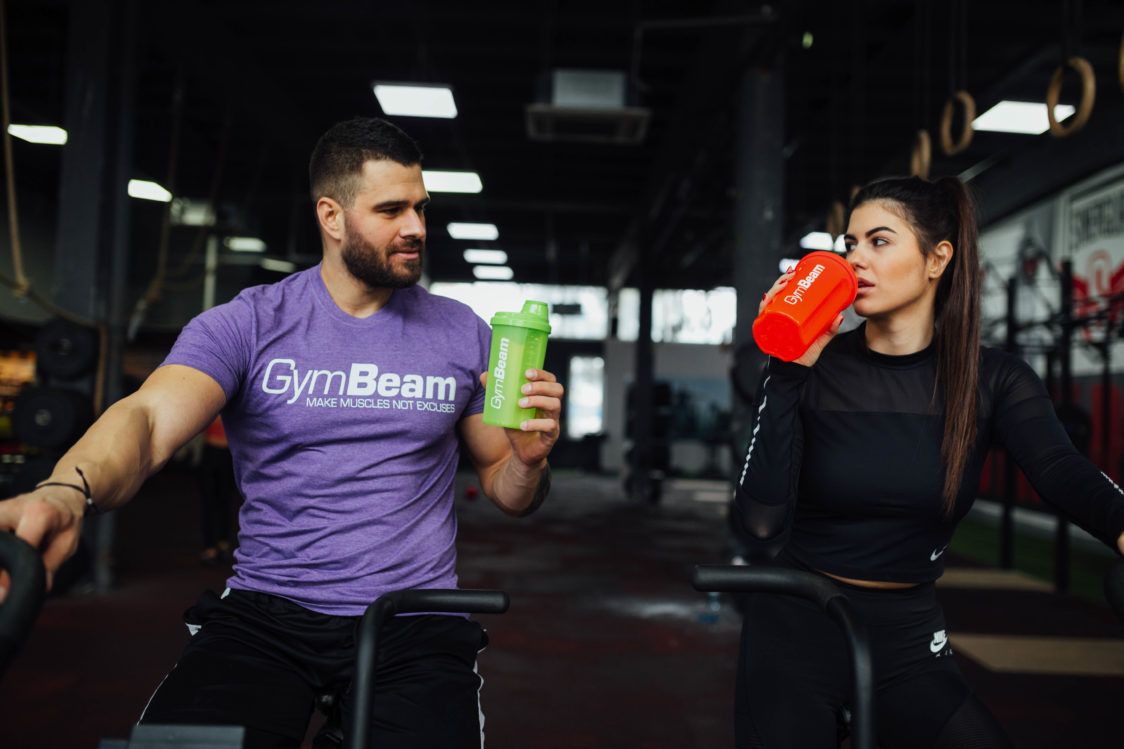
According to the WHO, you should do at least 150-300 minutes of moderate-intensity aerobic physical activity every week. It should be performed by adults aged 18-64. In case of higher intensity, it should be at least 75-150 minutes per week. [15]
The NIH (National Institutes of Health) recommends that you should do at least two and a half hours of moderate aerobic activity each day. It seems quite a lot, but you can divide it into smaller parts, which add up and can include normal daily activities. [2]
You can also follow a recommendation from the WHO, dividing the weekly 150 minutes into five days of 30 minutes each. You should be able to take such a short walk every day, even when you have a lot of things to do. It is the least you can do to support our health. However, it will be much more beneficial if you do a little more.
Our article 5 Tips to Stay Active, Motivated and Exercise Even at Home can help you put more physical activity into your life. If you are interested in the other benefits of exercise, you will find them in our article 10 Unexpected Benefits of Exercise that Will Improve Your Life.
Conclusion
As you can see, exercise doesn’t just bring big strong muscles and perfect Instagram photos. Its benefits to the body go much further and the most important ones remain invisible to the naked eye. Supporting overall health remains one of the biggest reasons to start exercising. This will allow you to feel better and ultimately enjoy life to the fullest. So, are you going to exercise today?
[1] Elizabeth Carpio-Rivera, José Moncada-Jiménez, Walter Salazar-Rojas, Andrea Solera-Herrera - Acute Effects of Exercise on Blood Pressure: A Meta-Analytic Investigation – https://www.ncbi.nlm.nih.gov/labs/pmc/articles/PMC4914008/
[2] Heart-Healthy Living – https://www.nhlbi.nih.gov/health-topics/heart-healthy-living
[3] Your Guide to Lowering Blood Pressure – https://www.nhlbi.nih.gov/files/docs/public/heart/hbp_low.pdf
[4] Causes of High Cholesterol – https://www.heart.org/en/health-topics/cholesterol/causes-of-high-cholesterol
[5] John Skoumas, Christos Pitsavos, Demosthenes B Panagiotakos, Christina Chrysohoou, Akis Zeimbekis - Physical activity, high density lipoprotein cholesterol and other lipids levels, in men and women from the ATTICA study – https://lipidworld.biomedcentral.com/articles/10.1186/1476-511X-2-3
[6] Charles Couillard, Jean-Pierre Després, Benoît Lamarche, Jean Bergeron, Jacques Gagnon, Arthur S. Leon - Effects of Endurance Exercise Training on Plasma HDL Cholesterol Levels Depend on Levels of Triglycerides – https://www.ahajournals.org/doi/10.1161/hq0701.092137
[7] George A. Kelley, Kristi S. Kelley, Susan Roberts, William Haskell - Combined Effects of Aerobic Exercise and Diet on Lipids and Lipoproteins in Overweight and Obese Adults: A Meta-Analysis – https://www.hindawi.com/journals/jobe/2012/985902/
[8] Paul T. Williams - Relationship of Distance Run per Week to Coronary Heart Disease Risk Factors in 8283 Male Runners The National Runners’ Health Study – https://www.ncbi.nlm.nih.gov/labs/pmc/articles/PMC3756592/
[9] Bob Holmes - This Is Exactly How Lifting And Exercise Make You Healthier – https://www.bodybuilding.com/content/this-is-exactly-how-lifting-and-exercise-make-you-healthier.html
[10] Mette Yun Johansen, Christopher Scott MacDonald, Katrine Bagge Hansen - Effect of an Intensive Lifestyle Intervention on Glycemic Control in Patients With Type 2 Diabetes – https://jamanetwork.com/journals/jama/fullarticle/2648632
[11] Physical Activity – https://www.mdanderson.org/prevention-screening/manage-your-risk/physical-activity.html
[12] Steven C Moore, I-Min Lee, Elisabete Weiderpass, Peter T Campbell - Association of Leisure-Time Physical Activity With Risk of 26 Types of Cancer in 1.44 Million Adults – https://pubmed.ncbi.nlm.nih.gov/27183032/
[13] Cécile Pizot, Mathieu Boniol, Patrick Mullie, Alice Koechlin, Magali Boniol, Peter Boyle, Philippe Autier - Physical activity, hormone replacement therapy and breast cancer risk: A meta-analysis of prospective studies – https://pubmed.ncbi.nlm.nih.gov/26687833/
[14] Li Liu, Yun Shi, Tingting Li, Qin Qin, Jieyun Yin, Shuo Pang, Shaofa Nie, Sheng Wei - Leisure time physical activity and cancer risk: evaluation of the WHO's recommendation based on 126 high-quality epidemiological studies – https://pubmed.ncbi.nlm.nih.gov/26500336/
[15] The Health Benefits of Physical Activity – https://health.gov/sites/default/files/2019-09/Physical_Activity_Guidelines_2nd_edition.pdf#page=31
[16] Darren E.R. Warburton, Crystal Whitney Nicol, Shannon S.D. Bredin - Health benefits of physical activity: the evidence – https://www.ncbi.nlm.nih.gov/labs/pmc/articles/PMC1402378/
[17] Improve your circulation through exercise – https://www.axahealth.co.uk/health-information/exercise-and-fitness/boost-your-circulation/
[18] 3 Kinds of Exercise That Boost Heart Health – https://www.hopkinsmedicine.org/health/wellness-and-prevention/3-kinds-of-exercise-that-boost-heart-health
[19] M Alexandra Kredlow, Michelle C Capozzoli, Bridget A Hearon, Amanda W Calkins, Michael W Otto - The effects of physical activity on sleep: a meta-analytic review – https://pubmed.ncbi.nlm.nih.gov/25596964/
[20] Pei-Yu Yang, Ka-Hou Ho, Hsi-Chung Chen, Meng-Yueh Chien - Exercise training improves sleep quality in middle-aged and older adults with sleep problems: a systematic review – https://pubmed.ncbi.nlm.nih.gov/22884182/
[21] Carolina V R D'Aurea, Dalva Poyares, Giselle S Passos, Marcos G Santana - Effects of resistance exercise training and stretching on chronic insomnia – https://pubmed.ncbi.nlm.nih.gov/30328967/
[22] Ashish Sharma, Vishal Madaan, Frederick D. Petty - Exercise for Mental Health – https://www.ncbi.nlm.nih.gov/labs/pmc/articles/PMC1470658/
[23] Exercise and Lung Health – https://www.lung.org/lung-health-diseases/wellness/exercise-and-lung-health
[24] David C.Niemana Laurel M.Wentzb - The compelling link between physical activity and the body's defense system – https://www.sciencedirect.com/science/article/pii/S2095254618301005#
[25] Exercise for Your Bone Health – https://www.bones.nih.gov/health-info/bone/bone-health/exercise/exercise-your-bone-health
[26] 13 Benefits of Exercise – https://health.clevelandclinic.org/benefits-of-exercise-other-than-weight-loss/
[27] New science shows how exercise affects nearly every cell in the body – https://www.nbcnews.com/health/health-news/exercise-weight-loss-new-science-reveals-affects-cell-body-rcna9680
[28] Beverley Balkau, Leila Mhamdi, Jean-Michel Oppert, John Nolan, Alain Golay, Francesca Porcellati - Physical Activity and Insulin Sensitivity – https://www.ncbi.nlm.nih.gov/labs/pmc/articles/PMC2551669/
[29] Darren E.R. Warburton, Crystal Whitney Nicol, and Shannon S.D. Bredin - Health benefits of physical activity: the evidence – https://www.ncbi.nlm.nih.gov/labs/pmc/articles/PMC1402378/
[30] Ellen Greenlaw - Exercises to Lower Your Blood Sugar – https://www.webmd.com/healthy-aging/features/exercise-lower-blood-sugar
[31] H. Dambha-Miller, A. J. Day, J. Strelitz, G. Irving, S. J. Griffin - Behaviour change, weight loss and remission of Type 2 diabetes: a community-based prospective cohort study – https://onlinelibrary.wiley.com/doi/full/10.1111/dme.14122


Add a comment